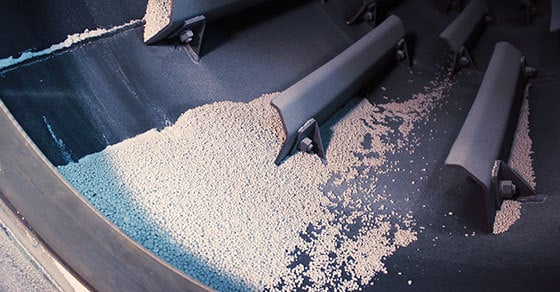Mineral dryers play a critical role in mineral processing, where controlling moisture content at various stages—from raw ore to final product—helps reduce shipping costs, improve downstream efficiency, and ensure a refined, market-ready material.
Though they may resemble other industrial dryers, mineral dryers are specifically engineered to endure the demanding conditions unique to this industry. The abrasive, heavy, and sometimes corrosive nature of minerals requires equipment built with robust components and durable materials of construction to ensure long-term performance and reliability.
Commonly Dried Minerals
The diverse nature of minerals and associated processing techniques can demand drying at any and all stages of mineral processing, from raw ore to concentrate, all the way to finished product. Minerals that commonly require a drying step during processing include:
- Alumina
- Barite
- Basalt
- Bauxite
- Borax
- Chromite
- Clay
- Ferrous minerals
- Fluorite
- Graphite
- Gypsum
- Iron ore
- Limestone
- Lithium
- Phosphorus
- Potash
- Pumice
- Magnesium
- Manganese
- Molybdenum
- Sand
- Silica
- Struvite
- Talc
- Vermiculite
- Zinc
Drying Raw Minerals
Extracted ore, no matter the mineral, is typically first crushed and then must go through a beneficiation process to remove unwanted impurities. The beneficiation process can vary significantly from one ore type to the next. In most cases, however, beneficiation is carried out through a wet process that necessitates a subsequent drying step. Mineral drying at this stage offers several benefits:
Reduced Transportation Costs
Drying raw ore makes transportation much more economic by removing the bulk of the moisture from the material, so producers are not paying to transport water weight and can utilize fewer transportation units.
Decreased Potential for Buildup
Moisture in raw material feedstock is problematic in downstream processing, because it increases the potential for buildup. Buildup in turn has the potential to clog equipment, stalling the operation, or even damaging equipment due to corrosion or abrasion. Depending on the mineral being processed, damage can be worsened by the material’s unique properties. Such is the case with gypsum, which can harden in place because of its cementitious nature.
Improved Material Handling
In general, the less moisture content a material has, the easier it is to handle (this is only true up to a point, as material then becomes dusty and presents new handling challenges).
A moisture-rich material can wreak havoc on the flow of operation as material moves through hoppers, bins, transfer points, conveyors, and more. Drying greatly improves material flowability, avoiding such issues.
The extent to which a mineral must be dried is highly variable, differing based on the type of mineral, characteristics found at the specific deposit, subsequent processing techniques, and the desired end product.
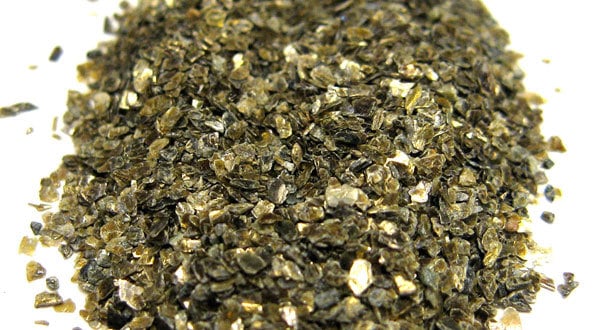
Dried vermiculite
Processed Mineral Drying
In addition to preparing the ore for processing, drying is also critical in producing many end products, particularly when the mineral will be pelletized for end market use.
As a post-processing step, drying accomplishes a number of objectives:
Improved Economics
As with raw ore, reducing the moisture content of the end product also reduces transportation costs, as well as improving storage, packaging, and handling economics.
Ensures Product Integrity
Drying is also essential in ensuring product integrity is maintained. Every product has a unique range (or even an exact percentage) at which it will maintain its form; too dry and the material is more likely to degrade and cause dust issues (attrition); too wet and the material could foster caking or harbor mold growth. Reaching the precise moisture content for a given material ensures that the product will stay in its intended form throughout its lifecycle.
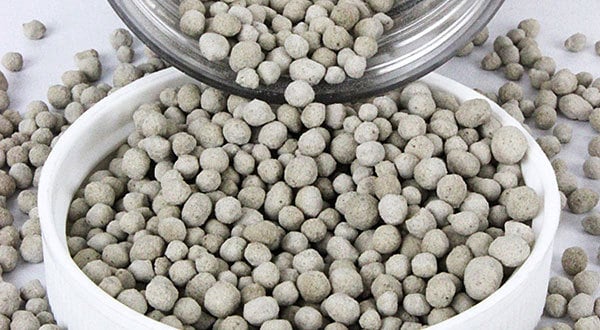
Dried limestone pellets produced in the FEECO Innovation Center
Mineral Dryer Selection
Rotary dryers are the industrial dryer of choice for mineral drying applications. Mineral dryer design varies based on the unique characteristics of the mineral to be processed. In general, however, one can assume that a dryer intended for mineral processing will meet certain objectives required by the industry:
- Materials of construction must be rugged and carefully selected to withstand constant abrasion and corrosion.
- The dryer must accommodate a high throughput.
- The dryer must be constructed with heavy-duty components (motor, gears, bearings, etc.) to be suitable for reliable long-term mineral processing.
Outside of these considerations, the characteristics of the mineral to be processed will largely dictate the dryer design, influencing factors such as retention time, length and diameter, air flow configuration (co-current or counter-current flow), and more. When processing potash, for example, a co-current air flow is used to avoid excess attrition and discoloring of the product that could occur with a counter-current configuration.
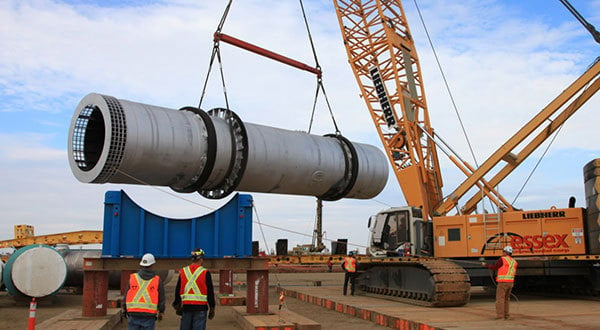
FEECO Potash dryer
Testing for Mineral Dryer Design
The variation in mineral types and characteristics often merits a mineral dryer testing program to assess how the material will respond to drying and subsequently, how the dryer must be designed to work best with the material.
In this setting, batch- and pilot-scale testing are conducted to gather initial process data and scale up the process to aid in the design of a commercial-scale dryer. Various particle characteristics can be targeted during testing to refine the product and ensure an optimal drying solution.
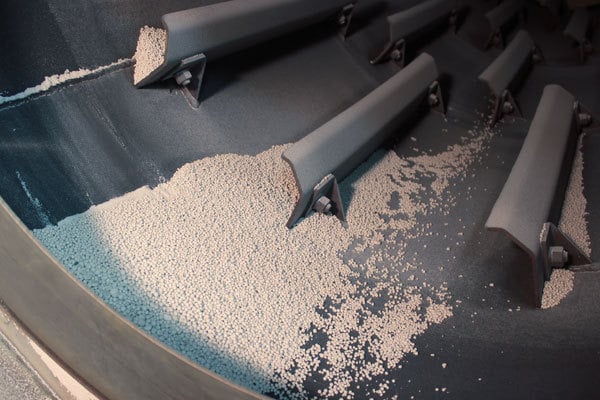
Dryer testing in the FEECO Innovation Center
Conclusion
The ability to control the moisture content of a mineral – whether raw ore or end product – is essential to the mineral processing industry, providing economic, handling, and processing benefits and allowing a premium product to be produced.
Rotary dryers have proven to be an ideal industrial dryer for meeting the demanding processing conditions required by the industry. Providing mineral processing solutions since 1951, FEECO is the global leader in custom rotary dryers for the diverse needs of the mineral processing industry. In addition to our custom dryers, we also offer a wide array of mineral processing equipment, as well as batch and pilot testing capabilities for process and product design and parts and service support. For more information on our mineral processing capabilities, contact us today!

